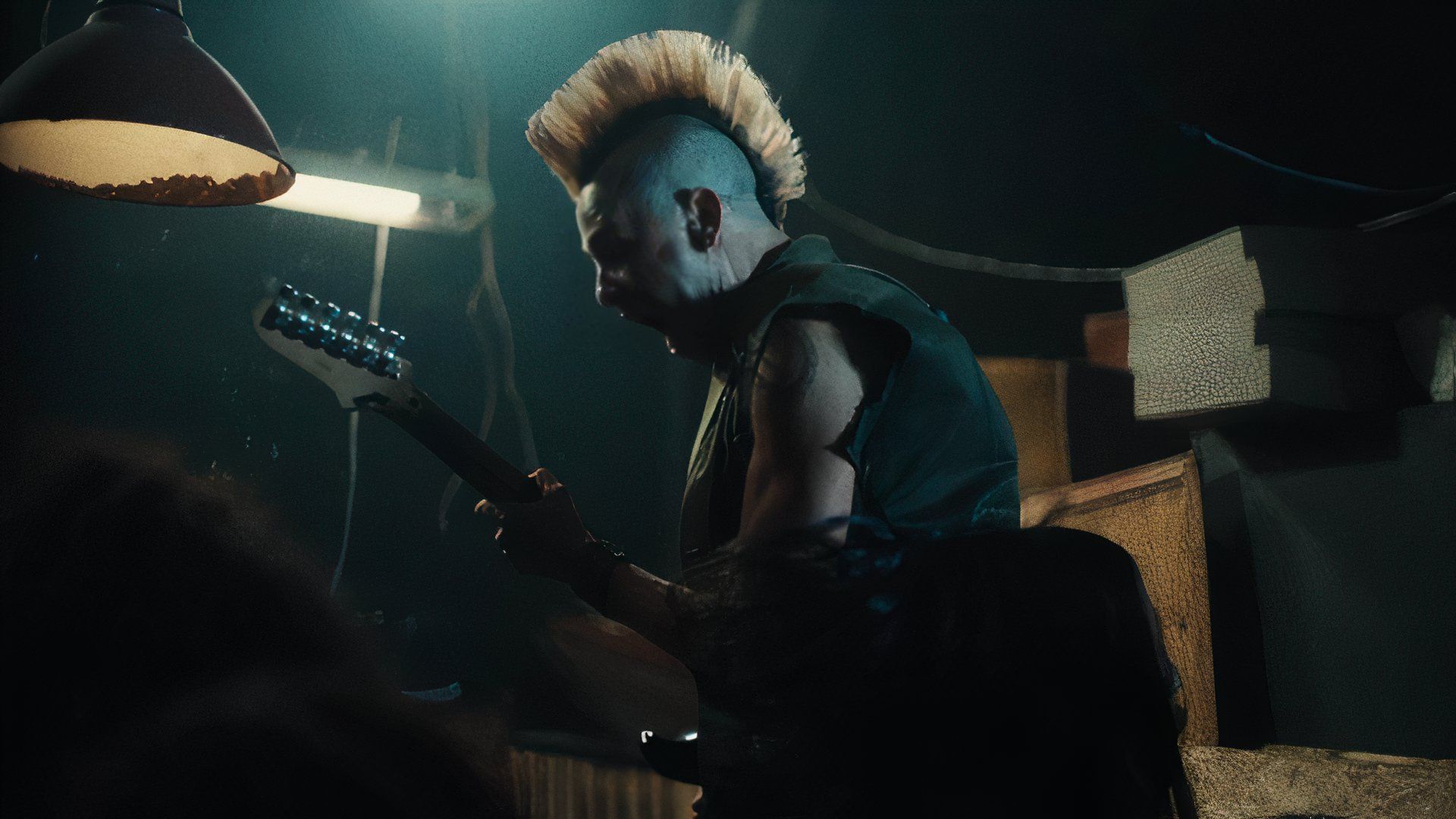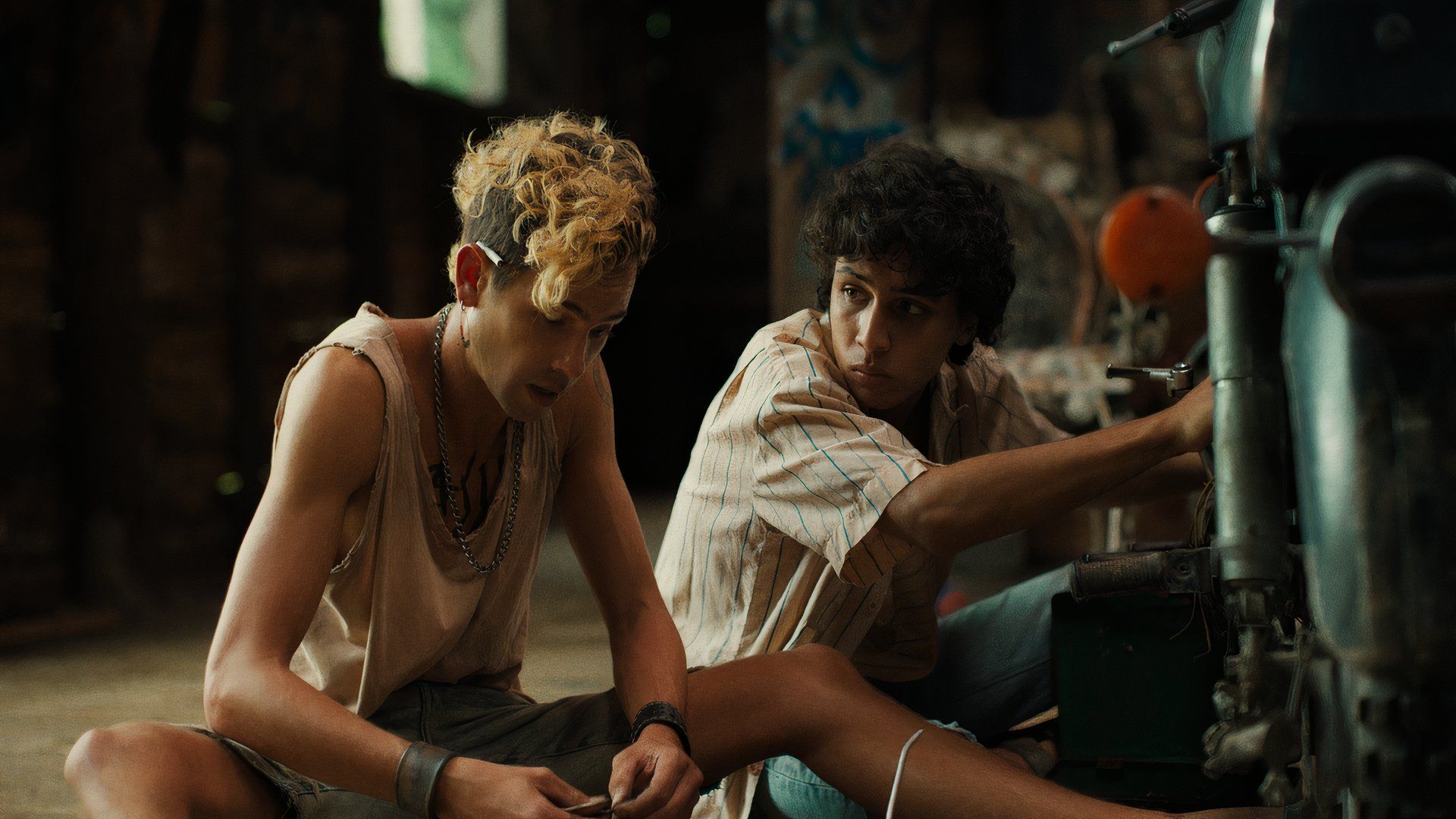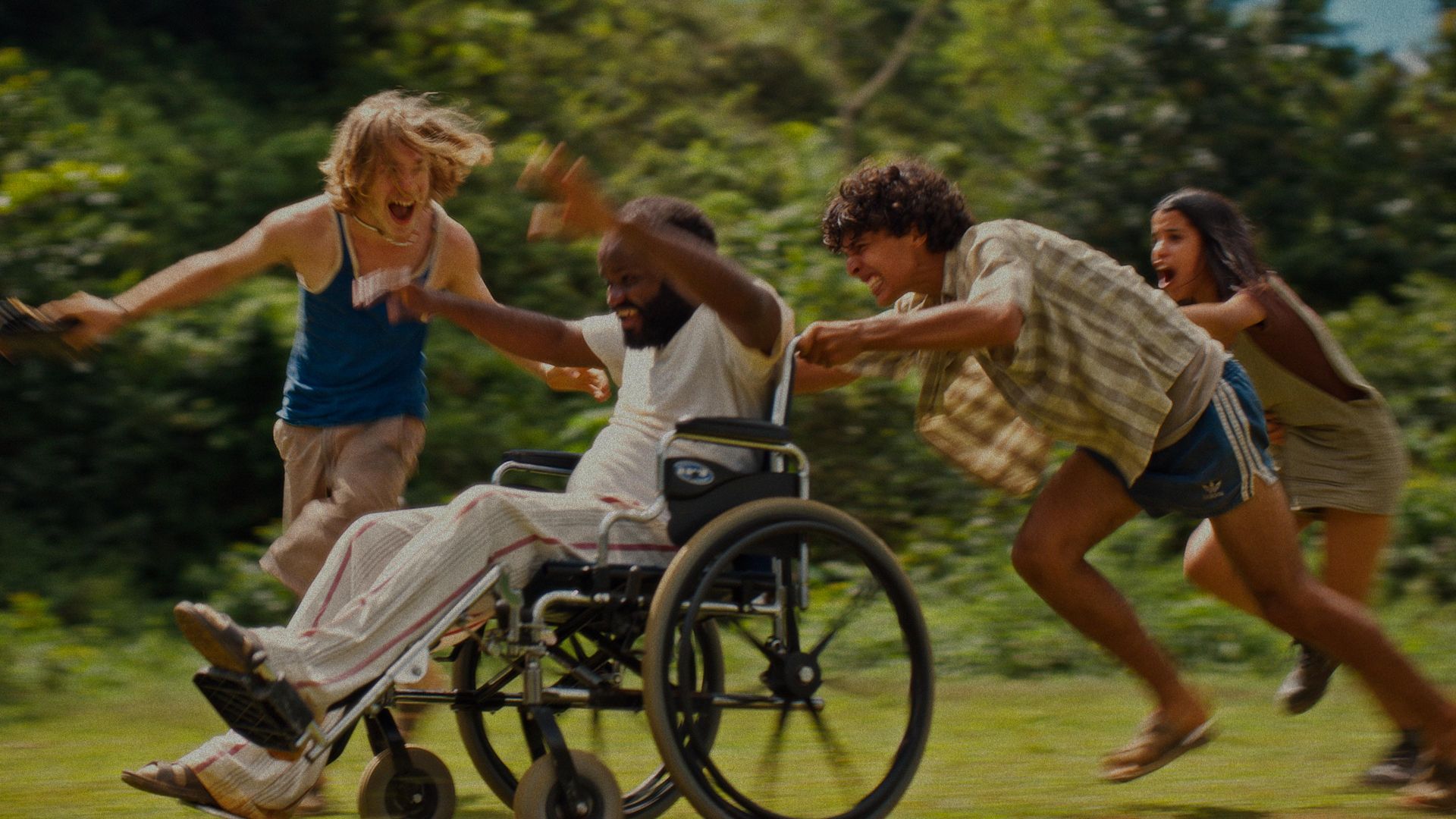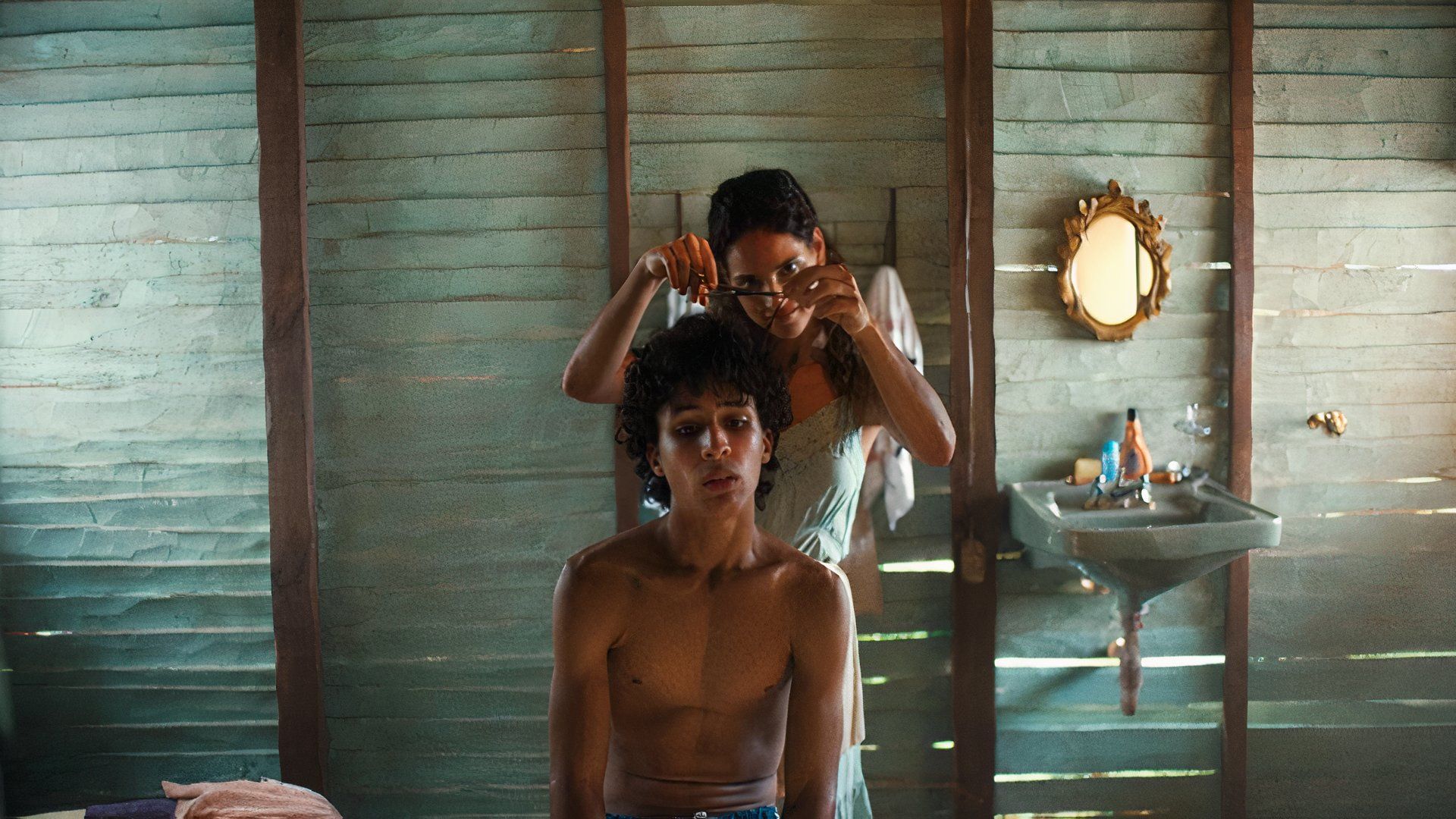
As someone who has always been fascinated by the power of music to transcend boundaries and unite people, I was drawn to Los Frikis like a moth to a flame. This film tells an extraordinary story that highlights the indomitable spirit of Cuban punk rockers who dared to defy the oppressive socialist regime in their quest for freedom and self-expression.
Drawing inspiration from real-life occurrences, the movie titled “Los Frikis” presents an extraordinary journey of self-discovery, detailing the daring measures taken by Cuban punk rockers to break free from the repressive communist system. Similar to their previous work in “The Peanut Butter Falcon“, directors Tyler Nilson and Michael Schwartz deliver a second feature that’s raw and honest in its portrayal of a relentless quest for freedom and compassion. “Los Frikis” skillfully captures the harsh realities of unnecessary suffering and control, but is equally exhilarating with the electric energy of rebellious spirit embodied by the power chords. However, the film’s enchanting characters maintain your focus until a somber third act seems to lose its narrative momentum.
Initially, it’s made clear that after Fidel Castro took power in Cuba in 1959, he prohibited rock music. Fast forward to the early ’90s, a rebellious group of teenagers embraced punk music as a form of defiance, listening secretly to it during clandestine gatherings. We meet Paco (played by Héctor Medina), a fiery individual with a mohawk and tattoos, passionately playing his old guitar and singing into a makeshift microphone. His younger brother Gustavo (Eros de la Puente) looks on in amazement and admiration as the teens dance and leap in a frenzy of sweat-drenched excitement. However, the good times are abruptly cut short when the police arrive, causing everyone to scatter in terror.
In the rundown apartment of their Uncle Mateo (Luis Alberto García), the brothers make a bed on the floor between them, highlighting their struggling life circumstances. The reality of their poverty becomes painfully clear as they haven’t eaten for several days now. The grocery stores are completely empty. To sustain their family, Paco and Gustavo gather water in buckets. One day, while out scavenging, Paco spots a stray cat in an alleyway. While Gustavo feels hesitant to harm the cat, Paco’s hunger overrides his empathy.
Harsh Times in Cuba
Paco’s music group gathers on a rooftop, utilizing a homemade antenna to tune into American radio broadcasts. Scarcity of food is apparent. Paco narrates tales about AIDS patients residing in jungle hospitals run by the government. These facilities offer sustenance, shelter, and even ice cream. Upon their return home, they are met with shocking news: Mateo and his family are planning a perilous raft journey to Florida. Paco, known for his mischievous nature, will be left behind. Similar to other members of the countercultural group “Los Frikis” (the freaky ones), Paco intentionally exposes himself to contaminated blood to contract HIV and gain entry into government-supported hospitals.
Reflect for a moment on the stark reality – during the period known as “Special Period” in Cuba, these individuals were so impoverished, famished, and oppressed that they were driven to extreme, almost unfathomable acts to flee their circumstances. This step was taken without a comprehensive grasp of the disease and its potential fatal consequences. Paco thought AIDS was just a flu that would be eradicated within a decade. The Frikis were energetic, robust youngsters. It seemed reasonable to assume they, along with others who followed suit, would survive long enough due to treatment. However, this assumption proved false; yet, their strategy did provide a temporary reprieve.
In the second act, Paco, followed by Gustavo, discovered an unconventional haven – a sanctuary. This secluded place was hidden from the general public as it was meant to house individuals who were considered “tainted” by the Cuban government due to their unique sexual preferences, gender identities, and unaccepted attitudes. Interestingly, this isolation provided Los Frikis with a secure and productive space where they could express themselves genuinely. For a while, it became a brief, blissful utopia filled with joy, until AIDS took a toll on their health.
A Compassionate Look at Suffering Characters



Nilson and Schwartz create a heroic character who endures a heartbreaking setback yet continues to aid those in need. Gus develops feelings for Maria, portrayed by Adria Arjona, who symbolizes compassionate and selfless individuals who didn’t judge or vilify those affected by AIDS. Mario fosters the siblings’ artistic abilities and nurtures their musical aspirations constructively. They find a supportive family that embraces them genuinely, but their time together is temporary. Each patient in the hospital faces an impending doom related to their illness. The movie never sugarcoats this reality.
Nilson and Schwartz expertly develop well-rounded characters. Mateo’s choice to voyage across a treacherous ocean with his wife and kids is not made lightly; he perceives it as the sole path for a more promising future. Similarly, Paco and Gustavo regard the sanitarium in the same manner. Castro ruthlessly suppressed dissent. The images of their family being compelled to work in sugarcane fields under political slogans, even though it’s a narrow viewpoint, can still stir deep emotional pain. They find taking risks more appealing than enduring an unchanging situation. Life in Havana during that era was excruciatingly difficult.
A Punk Movie with a Flat Ending
The band, The Frikis, lets loose a wave of raucous rock party spirit. Paco, Gustavo, and their group are incredibly punk-like, yet they lack traditional musical skills like many iconic punk musicians. Instead, they embody the raw, rebellious spirit without actual skill. This is amusingly discordant and intentionally grating to the ears. Gustavo’s faltering attempts at Nirvana covers are hilarious. However, he experiences a feeling of freedom and artistic expression with every distorted rhythm. That’s the essence – you don’t have to be like Kurt Cobain or Eddie Van Halen to create music that moves you deeply.
In a somewhat expected manner, Los Frikis veers off course without fully resolving key issues, leaving viewers yearning for clarity about certain character outcomes. Perhaps the creators, Nilson and Schwartz, intended to leave some aspects mysterious for poetic effect, but the audience craves resolution to their lingering questions. Los Frikis, which boasts impressive background details, should have concluded with a more climactic rather than anticlimactic ending.
Read More
- 10 Most Anticipated Anime of 2025
- Gold Rate Forecast
- Pi Network (PI) Price Prediction for 2025
- USD CNY PREDICTION
- USD MXN PREDICTION
- Silver Rate Forecast
- USD JPY PREDICTION
- EUR CNY PREDICTION
- Brent Oil Forecast
- Castle Duels tier list – Best Legendary and Epic cards
2024-12-01 00:33